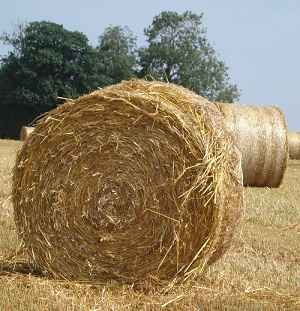AGRICULTURAL WORKER GRADES: Agricultural job grading gets based on the responsibilities, skills, and qualifications.
Grade 1: Initial Grade
As rule, a grade 1 worker has supervision. The work tends to be ‘relatively’ simple tasks.
These can include helping with the harvest, mucking out a horse livery, or packing goods for sale.
After working for the same employer for 30 weeks you then have the right to get trained to grade 2 level. The 30 weeks must be continuous employment and not accumulated over a few years.
Grade 2: Standard Worker
You can get an automatic grading to agricultural worker grade 2. To do so, you would need to have one of the following qualifications:
- A National Vocational Qualification (NVQ) level 2 or equivalent.
- Certificate of Competence for the relevant agricultural sector.
A grade 2 farm worker is also someone who:
- Works directly with livestock and unsupervised for most of the time
- Is trained to use powered machinery and certified to drive tractors.
Grade 3: Lead Worker
As a rule, agricultural worker grade 3 means you have completed two of the last five years in agriculture. Grade 3 workers will have either of the following qualifications:
- A National Certificate in agriculture or horticulture.
- At least four Certificates of Competency or non-accredited competencies in the agriculture sector you’re employed in.
- Manage a team – but is not empowered to discipline team members.
- Be viewed as a grade 3 team leader by their employer. To do so you must complete a trial period not exceeding one month.
Someone with a job grade 3 will also:
Grade 4: Craft Grade
A grade 4 worker is someone with either of the following qualifications:
- A National Vocational Qualification (NVQ) level 3 or equivalent.
- At least 8 Certificates of Competency or non-accredited competencies in the agriculture sector you’re employed in.
A grade 4 worker is also someone who has:
- Attained the required qualification and has 12 months’ continuous employment with the same employer.
- Worked for at least 2 years of the last 5 years in agriculture.
Grade 5: Supervisory Grade
The responsibilities of a grade 5 worker are either:
- Supervising work on a daily basis in an agricultural work environment (e.g. a farming business).
- Instructing, disciplining, and supervising other staff members.
Grade 6: Farm Management Grade
Grade 6 workers’ responsibilities include:
- General farm management and all its associated responsibilities. This may only be part of a farm if there are separate businesses on the farm – such as a livery yard.
- Employing, disciplining, and dismissing other staff members.
Agricultural Workers’ Categories
Farm job categories get based on the duties, responsibilities, and/or qualifications of the work involved.
Flexible Workers
A flexible worker needs to have written ‘flexible working agreement‘. The definition of a full-time flexible worker is one who:
- Works a basic 39 hour week. Note that the hours worked do not need to be the same each day.
- Works set hours on set days. These can only get changed with the employee’s agreement.
- Works on a Sunday when required.
The definition of a part-time flexible worker is one who:
- Works less than a basic 39 hour week. Note that the hours worked do not need to be the same each day.
- Works set hours on set days. These can only get changed with the employee’s agreement.
Trainees
The definition of trainee is one who is part of:
- A Business, Innovation and Skills-approved training scheme completing work experience.
- The Diploma in Environmental and Land-Based Studies for 14 to 19-year-olds on work experience.
- The second phase of the European Leonardo da Vinci Program.
Note: The Leonardo da Vinci programme is a European Commission funding programme. It focuses on the teaching and training needs of those involved in vocational education and training (VET).
Apprentices
Apprenticeships combine practical training in a job along with some studying. An apprentice will:
- Work alongside experienced staff to gain job-specific skills.
- Earn a wage and get holiday pay.
- Get time for study related to their role (usually one day a week).
Agricultural Gangmaster
 An individual, an agency, or a company that provides workers for farming is better known as a ‘gangmaster‘.
An individual, an agency, or a company that provides workers for farming is better known as a ‘gangmaster‘.
Agricultural gangmasters must have a ‘Gangmasters and Labour Abuse Authority’ licence to provide workers for:
- Agriculture: The growing and harvesting of arable and non-arable products.
- Horticulture: Includes growing and harvesting bulbs, flowers, and plants.
- Dairy farming: Including duties such as mucking out.
- Shepherding.
- Forestry.
- Rearing non-traditional animals and insects: This includes rearing alpacas, ostriches, and rabbits.
- Maggot and worming farming.
- Gathering of shellfish (using supplied workers to gather shellfish requires a license).
Farm gangmasters do not need a GLAA licence to supply workers for certain jobs in the industry. These include:
- Transporting milk from a farm.
- Artificial insemination.
- Blacksmithing.
- Collecting ‘fallen stock‘.
- Gathering of wild creatures or wild plants.
- Gamekeeping.
- Groundsmen looking after playing fields or a golf course.
- Hedging, ditching and drainage.
Gangmasters and Labour Abuse Authority (GLAA)
PO Box 10272
Nottingham
NG2 9PB
Email: [email protected]
Telephone: 44 (0)345 602 5020
Monday to Friday: 9:00am – 5:00pm
Check the cost of calling 0345 numbers.
ALSO IN THIS SECTION
Agricultural Workers’ Rights: A section with information on the rights of agricultural and farm workers.
Changes to Employment Terms: New rules for agricultural jobs in England from the 1st of October 2013.
Farm Workers’ Tenancy Rights: Agricultural workers may get automatic ‘assured agricultural occupancy’.
Gangmasters in Agriculture: An individual, agency, or a company that provides workers for farming.
Pay and Overtime: Information in the page lists farm worker pay rates by grade and category.

